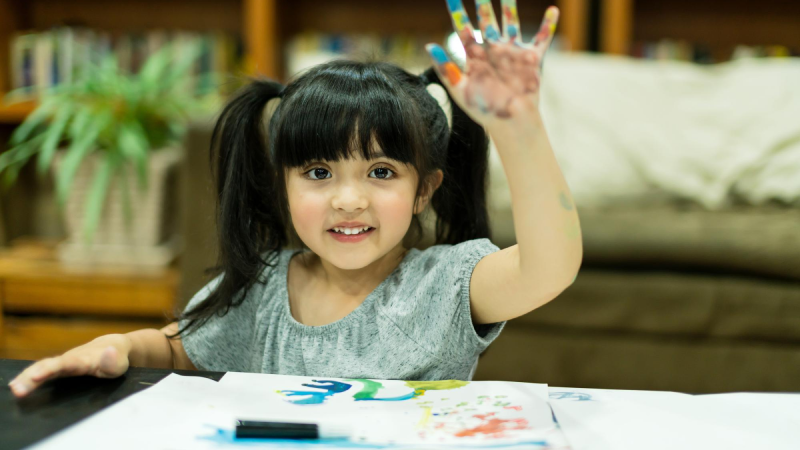The arts in education promote creativity, expression, connection, and skill-building, which are essential for a child’s academic journey.
Art is not just messy fun; it is much closer to making sure that students become self-confident and well-rounded individuals.
Using painting and sculpting, among many different things, gives them important skills for developing and learning how to solve problems, their emotional well-being, and their strong interpersonal skills.
It is preparing children to have the right skills needed to succeed in their academic and life challenges. This blog shall discuss the role and importance of the Arts in the Education of children.
Importance of Arts in Education
Arts plays a vital role in Education, providing significant benefits in numerous ways. Here are some of the benefits of art in education:
Enhance Cognitive Development
As the brain develops rapidly during early childhood, cognitive development helps to solidify essential concepts like language, object permanence, and numeracy, laying a solid foundation for educational success.
Art education contributes to cognitive development in critical thinking, problem-solving, and spatial reasoning.
Drawing, crafts, or painting require students to read, analyse and interpret, making decisions that improve school performance.
Cultivate Collaboration and Teamwork
Collaborative art projects are an ideal way to promote collaboration and teamwork.
The learning experience of collaborative projects and performances provides a solid foundation for teaching students to work together toward a common goal.
Whether they’re dancing in a group, creating a group mural, or participating in a play, students learn to communicate, collaborate, and understand each other’s strengths.
Students learn to work together effectively and prepare themselves to collaborate successfully in diverse settings.
Emotional and Soft Skills
Artistic activities are very much related to emotional expression and control. They can develop empathy, inclusion, collaboration, and emotional control.
Art education teaches students to explore their feelings, resulting in self-awareness and emotional intelligence that enables students to deal with their emotions in a better way.
Promoting Cultural Awareness and Appreciation
Giving children different forms of exposure to art offers them exposure to its various cultures, its traditions, and its histories.
Further, exposure to arts activities boosts critical thinking skills and urges children to be cautious observers of the world around them. This cultural awareness promotes inclusion and respect at their tender stages.
Developing Practical Life Skills
Arts education helps children grow their self-confidence and self-esteem in various ways.
It allows them to express themselves and find their interests, as well as develop critical thinking and problem-solving skills that help them to achieve growth.
Moreover, engaging in the arts provides a source of joy, fulfilment, and emotional expression that empowers children to lead meaningful lives.
Enhancing Creativity and Innovation
Creativity drives new ideas and plays a key role in solving complex problems. When students paint pictures, write songs, or act on stage, they try new things, take creative risks, and discover their unique voices.
Learning about art helps create a culture of new ideas and gives students the skills to do well in a changing world.
Empower Personal Growth and Well-Being
Arts education nurtures personal growth by building confidence, resilience, and a sense of achievement.
The creative expression serves as an emotional outlet, offering joy and fulfilment while promoting mental well-being.
Whether through painting, music, or performing arts, students discover a passion that enhances their overall quality of life and encourages self-discovery.
Fine Motor Skills
Art activities engage children in precise hand movements, stimulating their hand-eye coordination, grip strength, and hand dexterity.
Moreover, creating art often involves attention to detail and focus on the task at hand. As children concentrate on their activities, they develop the ability to focus for a longer period, which helps them improve their academic success.
Conclusion
Art education plays a key role in the holistic development of students at Chrysalis Kids, one of the best children’s schools in Bangalore.
Fostering creativity, critical thinking, cultural awareness, emotional and social skills, and cognitive development helps students navigate challenges and achieve academic success.
Looking for a school that values creativity and holistic growth? Explore our Curriculum Now!
